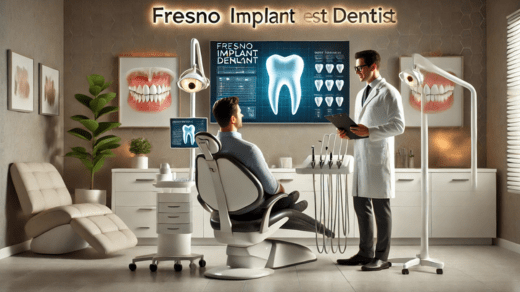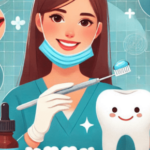Have you lost teeth while working in a heavy automobile industry in Corona, leading to an unforeseen fall? No matter the cause of oral trauma, a Corona dentist recommends replacing the missing teeth to bypass future dental complications and preserve your oral health! However, if you have missing teeth or a visible gap between your teeth, a dental bridge can aid in filling the space. Once dentists carefully assess the remaining bone of the missing teeth, your gums, and adjacent teeth, a removable or fixed bridge will be suggested, which provides superior restorations. So, what are they? Let us compare these two fantastic dental procedures to help you better comprehend your options!
Dental Bridge: Overview
A tooth bridge is one type of device dental professionals utilize to alter missing teeth where they can attach artificial teeth crowns and attach them to the remaining bordering natural teeth. Compared to a detachable bridge, a fixed bridge with metal clasps will be restored to the patient’s teeth. Moreover, they are crafted to match the color of your natural teeth, shape, structure, and your original teeth’s size, providing a durable option for superseding missing teeth.
Detachable Dental Bridge: Overview
A removable or detachable dental bridge is also known as a partial denture, a major dental appliance that helps restore the complete bite and people’s smile with missing teeth. They are one of the affordable options compared to dental implants and offer the same degree of functionality. Moreover, the detachable characteristics of this type of dental bridge are amazingly integrated into several patients’ lifestyles once they become familiar with the bridge.
Pros and Cons of Fixed Dental Bridges
Pros
- Functionality – Once in place, fixed bridges can work like natural teeth, letting you eat, speak, swallow, and smile confidently.
- Stability – Fixed bridges are tightly fixed to nearby natural teeth or dental implants, giving supreme viability and stability.
- Aesthetics – These dental bridges are customized to replicate your real teeth’ structure, color, size, and shape, maintaining a genuine and flawless appearance.
- Longevity – While given the desired care, fixed bridges can last years, providing a solid and long-lasting substitute for altering missing teeth.
Cons
- Cost – Fixed bridges are pricier than detachable ones, making them less accessible for some patients.
- Comfort – They can feel and function similarly to natural teeth once in place, reducing irritation and discomfort.
- Supervision Challenges – Cleaning under and around the dental bridge can be cumbersome and lead to tooth decay and plaque accumulation.
- Irreversibility – Conditioning your adjacent teeth for bridge replacement involves eliminating some irreversible enamel, which might compromise your teeth’s health.
Pros and Cons of Detachable Dental Bridges
Partial dentures are known as prosthetics used to replace misplaced teeth. Detachable bridges can quickly be released for cleaning and maintenance compared to fixed bridges. The pros and cons are the following:
Pros
- Adjustability – They might be modified to fulfill transformations in the oral cavity, such as gum recession or teeth loss.
- Natural Teeth Preservation – Compared to fixed dental bridges, detachable ones don’t need the preparation of adjacent teeth, storing their natural integrity.
- Removability – They can quickly be withdrawn for maintenance and cleaning, boosting oral hygiene and minimizing the risk of gum disease.
Cons
- Adjustment Period – It might take a few minutes to hours for patients to fix wearing detachable bridges, mainly if they are new to dental appliances.
- Stability – Removable ones might feel less sturdy during eating or speaking than fixed dental bridges, leading to insecurity or distress.
Conclusion
Every patient’s needs differ, so consulting with a professional dental professional in Corona is vital before opting for a detachable or a fixed one. Knowing their differences and considering factors, including lifestyle, oral health, and long-term objectives, you can make a significant decision that best matches your needs.



